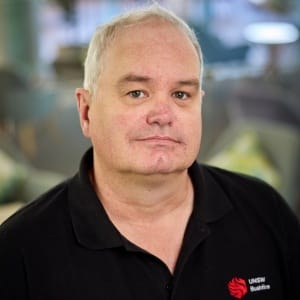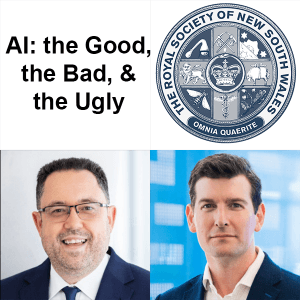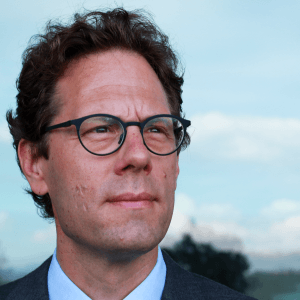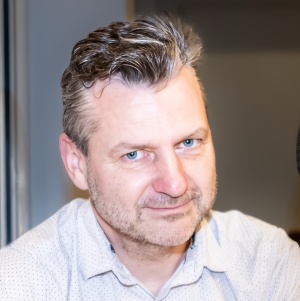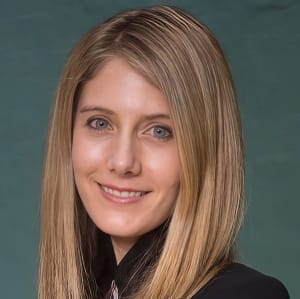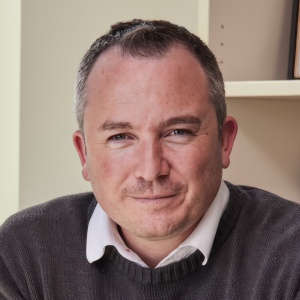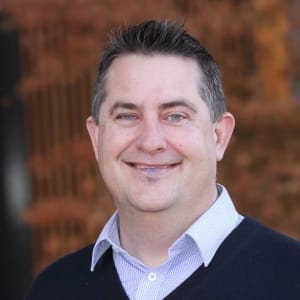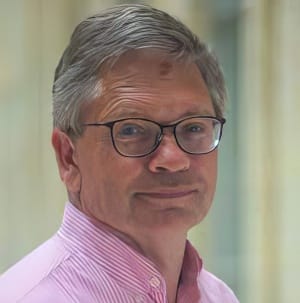
 “Engineering the Future”
“Engineering the Future”
Professor Hugh Durrant-Whyte
FRS FREng FAA FIEEE HonFIEAust
NSW Chief Scientist and Engineer
Date: Wednesday, 2 April 2024
Time: Annual General Meeting: 6.00–6.30 pm; Ordinary General Meeting: 6.30–8.00 pm AEDT; Optional Supper: 8.00–9.30 pm
Venue: (*) AGM/OGM: Michael Crouch Room, Mitchell Building, State Library of NSW, Shakespeare Place, Sydney
Pre-meeting drinks: A cash bar will operate from 5.30 pm
Supper: An optional supper will be available at the Mordeo Bistro and Grill on Deutsche Bank Place (cnr Hunter and Phillip streets), Sydney following the OGM
Registration: AGM/OGM: Please register by 2.00 pm AEDT on Tuesday, 1 April 2025
Supper: Please register by 5.00 pm AEDT on Friday, 28 March 2025
Entry: AGM/OGM: Members, $20; Non-members, $30; Students, $0
Supper: $60 per person (non-refundable) for a fixed menu meal, with drinks extra by consumption
Live streaming: Please note that this meeting will be live-streamed at no cost
Video presentation: YouTube presentation
All are welcome, although only full voting members of the Society may attend the AGM
Please note the change of venue and also the availability of live streaming
Agenda: The Agenda for this meeting is available from the Meetings Page
Summary: Hugh Durrant-Whyte has worked as an engineer in academia, industry and government for over forty years during which time he has witnessed and been an active participant in great change – driven primarily by the growing power of information and communication technologies. He believes that the next forty years of engineering will deliver even more profound change for humanity through the intersection of four technology domains – Digital, Biology, Materials and Energy:
- The digital and information age is still in its infancy. The positive potential of artificial intelligence (AI) and robotics to enable more productive lives, to make better decisions and to undertake tasks not yet possible, is just beginning. While mindful of the perils, Australia stands to benefit substantially from these developments – from increased and bespoke manufacturing activity, through smarter defence, to managing fragile ecosystems. New physics, in quantum, photonics and organics, will also drive unprecedented advances in information technology hardware, from computing to sensing and communications.
- The revolution in biology in the last two decades rivals that of the early information age. Biology is increasingly an engineering discipline as it becomes more concerned with design, computation and manufacturing. Engineering is already at the heart of new and developing biology industries from RNA to synthetic meats. Engineering thinking is also driving new directions in biology: the use of computational AI in protein structure prediction; understanding life as a complex web of protein nano-machines; and the use of tools from synthetic biology and gene editing to create new proteins and organisms. I believe that as biology becomes an engineering technology, its impact will surpass even that of the information age.
- Materials science has changed beyond all recognition from forty years ago: what was once mainly about metal forming and finishing, is now about nano-structures and internal architectures, meta-materials and additive manufacturing, and about carbon and novel organics. This has been driven by a new understanding of materials at the atomic scale, by additive manufacturing technologies, and by the increasing use of novel chemistries – both organic and inorganic. Materials science is increasingly the key to progress across many engineering disciplines: from modern aerostructures and buildings, through energy storage and transmission, to silicon and compound semiconductors for sensing and computing.
- The existential threat of climate change has brought a huge focus on new ways of producing, storing and managing energy. Renewable energy, in particular, is seeing unprecedented innovation and investment in all areas: from harnessing solar and wind generation of energy, to storage in batteries and hydrogen derivatives, to new methods of managing decentralised electricity grids. This, in turn, is driving a revolution in foundational technologies of electrical engineering, materials chemistry and computation. Global investment is also unprecedented and with this provides an opportunity for Australia to create a significant national industry in the coming decades.
This talk will discuss this future vision of engineering.
Hugh Durrant-Whyte is the NSW Chief Scientist & Engineer and Natural Resources Commissioner.
Previously from:
- 2016–18, Hugh was Chief Scientific Advisor to the UK Ministry of Defence
- 2014–16 and 2002-2010, he was a Professor and ARC Federation Fellow at the University of Sydney
- 2010–2014, he was CEO of National ICT Australia (NICTA)
- 1995–2010, he was Director of the ARC Centre of Excellence for Autonomous Systems and of the Australian Centre for Field Robotics (ACFR).
Hugh is a world-leading authority on machine learning and robotics and their applications in areas that include cargo handling, mining and defence. He has published over 300 research papers, graduated over 70 PhD students, and has won numerous awards and prizes for his work, including being named 2010 NSW Scientist of the Year and 2008 Engineers Australia NSW Engineer of the Year.
In his career, he has worked with many major companies and has co-founded three successful start-up companies. He is particularly well known for his work with Patrick in delivering the automated container terminals in Brisbane and Port Botany, and for his work with Rio Tinto in pioneering and delivering the automated “Mine of the Future”. He is an honorary Fellow of Engineers Australia, a Fellow of the IEEE, a Fellow of the Royal Academy of Engineering, a Fellow of the Australian Academy of Science, and a Fellow of the Royal Society of London.
| Royal Society of New South Wales | |
| Date: | Wednesday, 02 April 2025, 06:30 PM |
| Venue: | Michael Crouch Room, Mitchell Building, State Library of NSW, Shakespeare Place, Sydney |
| Entry: | Members, $20; Non-members, $30; Students, $0 |
In Person Event
All are Welcome

